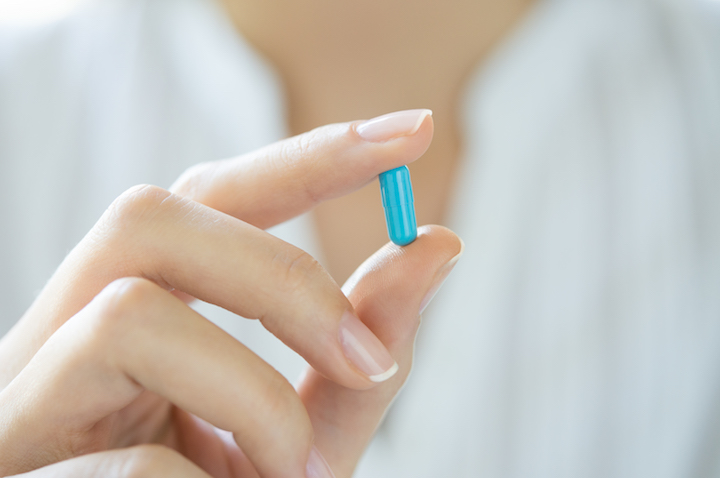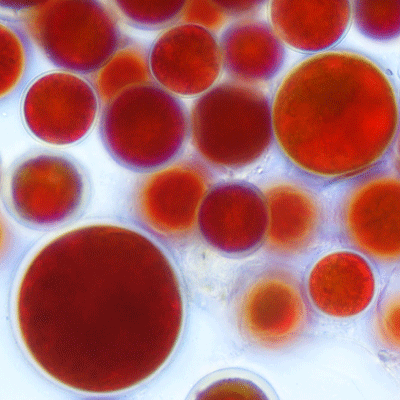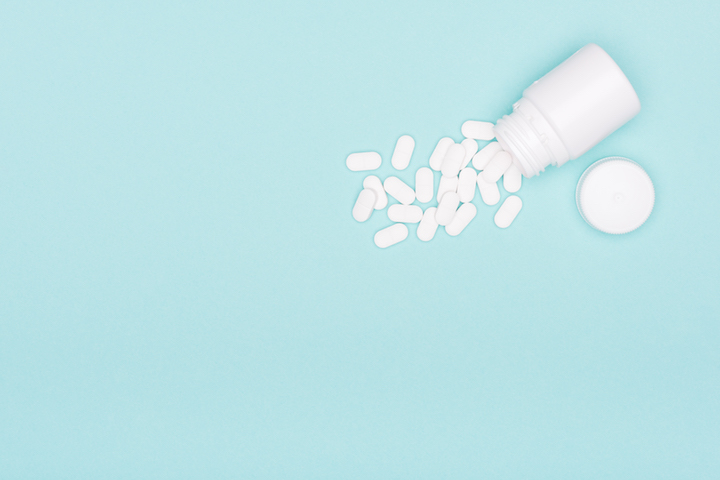A skeptic takes a deeper dive into the world of beauty supplements — and comes up somewhat surprised. Here's what she found.
Beauty supplements are everywhere these days. Over the past few years, skincare has become more and more entwined in consumers’ minds with self-care and wellness culture, and this more holistic approach to our grooming rituals has driven the beauty ingestibles trend. There are collagen drinks, beauty supplements, and even “oral sunblock” (which, by the way, absolutely do NOT replace SPF!). But do these ingestibles work, or do they just give you expensive pee?
When I accepted this assignment, I expected to conclude that the answer is no. With some rare exceptions, the beauty supplement concept never appealed to me. When you ingest something, it has to be broken down in your digestive system and nutrients then distributed to the rest of your body. Conventional wisdom and personal experience both suggest that skin gets the short end of the stick. Topical vitamin C shows better results for me than simply eating lots of produce. Drinking more or less water per day never seemed to make a difference to how hydrated my skin looked, compared to using more or less hydrating skincare.

I’m still on the fence about specific products, but after doing some reading, I’m much more open to the concept itself.
Collagen and astaxanthin: Anti-aging from within?
Take collagen, for example. One of the reasons the collagen supplementation fad bothered me is how much like magical thinking it seemed. Our skin needs collagen to stay firm. Collagen loss happens naturally with age and sun damage. What seemed implied to me by collagen supplement marketing is that the collagen in the drinks or pills will magically fly straight from your stomach to your skin, bypassing the digestive system or any other parts in need of it (like aging joints).
The reality is more complicated. Collagen is broken down in the digestive system into smaller fragments, which then enter the bloodstream for distribution. But, surprisingly, there is some evidence that supplementation may improve the texture and appearance of skin. Though it has a small sample size, this double-blind, randomized, and placebo-controlled 2015 clinical trial did find that a collagen-containing nutritional supplement reduced wrinkle depth. The paper cites other studies with similar outcomes.
Antioxidant supplementation to protect skin from free radical damage seemed just as questionable to me, for the same basic reason as collagen supplementation: I always doubted that, even if effective, the antioxidants would end up benefiting skin rather than other organs or tissues. They’re not nanobots. They don’t know which part of your body you want them to help. Even there, though, there is some promising research, like this 2012 study showing that a combination of oral and topical astaxanthin improved wrinkles, elasticity, and moisture retention.

By the way, it’s important to note that “sun care” and “sun protection” supplements derive their claims primarily from the antioxidants they contain. Even if effective at preventing some free radical damage from sun exposure, no pill can prevent the deep cell and DNA damage caused by exposure to UV radiation.
Even where lab evidence shows promise for supplements like these, however, a lot of questions remain. There’s no consensus about optimal doses, for example, and different brands use different concentrations of ingredients. It’s similar to skincare in that way: just because studies show that a certain ingredient can do a certain thing under specific conditions, doesn’t mean any product containing that ingredient will do that thing.
Buyer beware
I’m much less against the concept of beauty supplements these days than I used to be. With that being said, it’s extremely important to remain critical and safe when taking nutritional supplements.
In the U.S., nutritional supplements are less strictly regulated than medicines. Per the FDA’s own website, "Federal law does not require dietary supplements to be proven safe to FDA's satisfaction before they are marketed. For most claims made in the labeling of dietary supplements, the law does not require the manufacturer or seller to prove to FDA's satisfaction that the claim is accurate or truthful before it appears on the product."

More alarmingly, "In general, FDA's role with a dietary supplement product begins after the product enters the marketplace. That is usually the agency's first opportunity to take action against a product that presents a significant or unreasonable risk of illness or injury, or that is otherwise adulterated or misbranded."
Some commonly supplemented nutrients can interact with other medications or medical tests. Biotin, often used in hair and nails vitamins, can interfere with lab test results (and is known, anecdotally, to cause cystic acne in some people). Fish oil may interact with medications, including anticoagulants, blood pressure drugs, and birth control. Just because they’re marketed and regulated as supplements rather than drugs, doesn’t mean supplements can’t have real effects on your overall health.
Before taking any supplements, the best course of action is to discuss them with your physician, including any information your physician doesn’t currently have about other medicines and vitamins you take.
From a purely beauty standpoint, don’t expect the little pills or drinks to replace your topical skincare. They’re called “supplements” for a reason. Even at their best, expectations should be that they will supplement your existing routine, not do everything your routine does and more.
Have you tried any beauty supplements? What was your experience?
Loading...